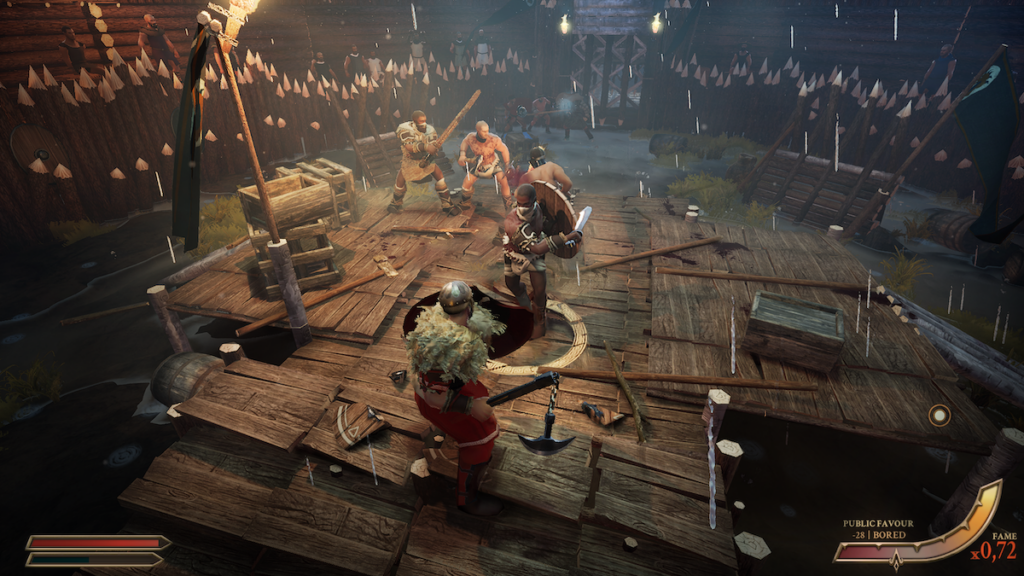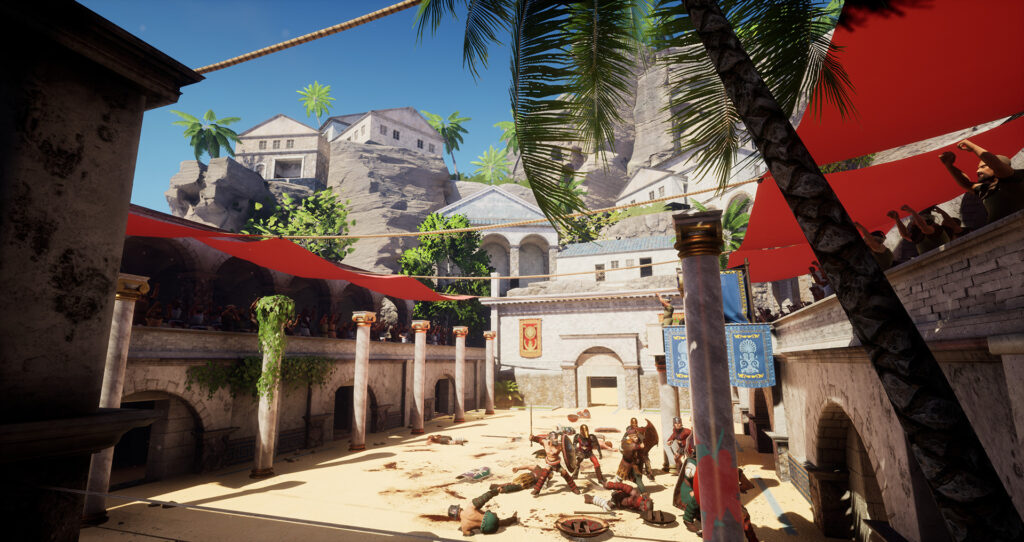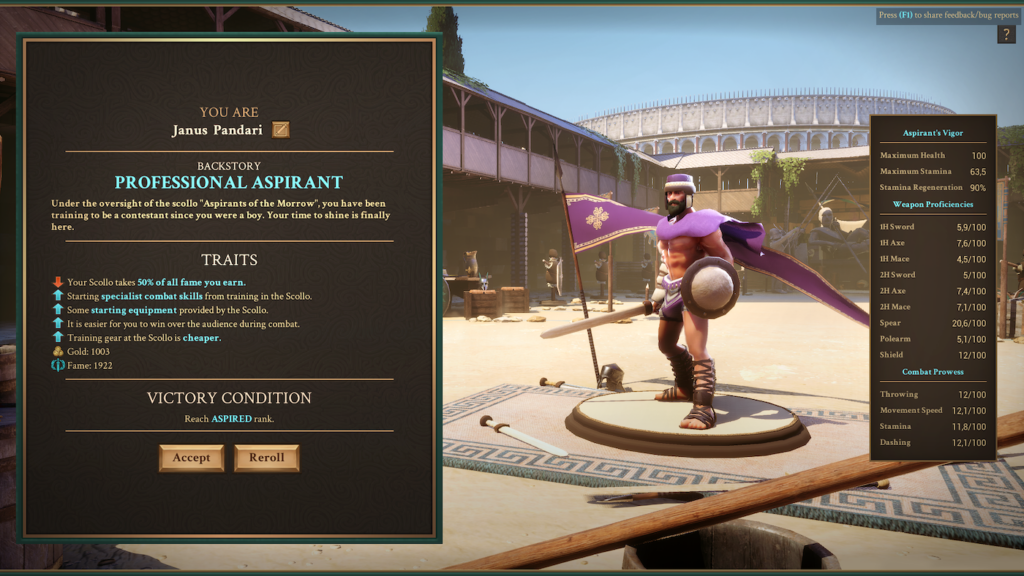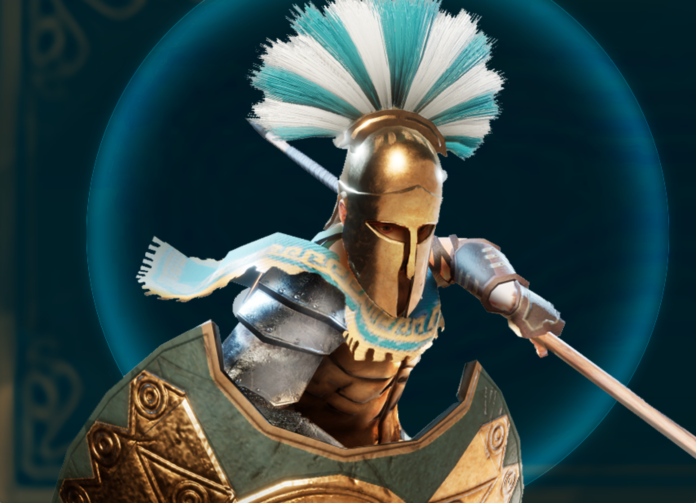Jordy Lakiere is a Belgian game developer who is about to release his debut game in Steam Early Access. The Gladiator simulator We Who Are About To Die is an ambitious passion project that’s been in development for 7 years. Lakiere started development of the game in 2016 by himself because he ‘had no budget or contacts to form a team’. He poured thousands of hours into the game and had to learn most aspects of game development along the way.
“The hardest part for me was when I put countless hours into marketing in the first 4-5 years of the project to absolutely no effect.”, he says. “For most of the years of development, I had no idea if anyone would even care about the game in the end.” But now, close to the finish line, things are looking up. “It took me two years of almost daily marketing work to achieve 6-7000 wishlists. Yesterday I added 5000 wishlists in 1 day. It’s all a bit surreal.”
Why did you become a solo developer?
“I didn’t really have any other options! I had no budget to hire people and as a freelance concept art illustrator I didn’t have the contacts or knowledge to form a team. Later I got more into the local games industry, but by then the game and its design were already too established to persuade anyone else to collaborate. I figured not many people would be interested in a project that was already in full production.”
What are the biggest advantages of working solo?
“Generally I would say there are not many advantages, but I obviously don’t have to answer to anyone. Especially in terms of pacing and deadlines there is no ‘stress’ at all, just a huge workload. There is also a lot of variety. A constant variation in tasks is something that appeals strongly to me personally.”
What are the biggest pitfalls of working solo?
“As mentioned, the workload. This can sometimes be overwhelming if you don’t control the mental aspect. One day at a time. If you’re not willing to pick up completely new skills and go out of your comfort zone, you won’t get very far. I’ve had to learn several new skills. Programming is the obvious one, but also music! I once spent two months making an orchestral composition of the main theme, because I had never made music before. It is easy to just not dare to start, but acquiring skills is the most important aspect of being a solo dev if you ask me.”
Acquiring skills is the most important aspect of being a solo dev
“The hardest part for me was reaching people since there was no marketing company or publisher that would make people aware of the game. For most of the years of development, no one cared and I think this is easy to forget in hindsight. At one point there were three years of work behind me, and possibly three years of work in front of me, and I had no idea if anyone would even care about the game in the end. Even a single extra team member who can focus full time on marketing would make a world of difference.”
What’s your creative process?
“First I put ideas on a wildly chaotic notepad. Then I block everything out in-game, and after that a huge amount of trial and error and iteration follows. Lots of features are 3, 5 or even 10 times re-desgined and re-implemented. From my time as a freelance artist and as a lecturer in concept art, I am keenly aware of the value of feedback and reference material so I continually sought this out. For the last 2 years I have had active playtesters who completely shaped the game. Without dedicated testers and feedback there would be no game and no success.”

Fight alongside allies against groups of enemies, or take on tense one-on-one duels.
“Before that I mostly playtested myself and involved a lot of family, friends, colleagues and loved ones. I talked and talked to them, just to get it out and organize my thoughts! I also try to play a lot of similar games. It’s fun to just play games and call it research, hahaha.”
How do you stay motivated through (years of) development?
“I make a game that I want to play myself. From the beginning I knew this would be essential to keep it going for years, so it was a tactical decision. Also the variety of work helps. I can switch between different tasks for a while if I get tired of something. For me this is extremely helpful. Releasing a game has been my dream since I was 14, so there’s also a certain dedication, sometimes born out of frustration to be honest. But if it helps, why not, right?”
I allowed myself breaks, sometimes quite long
“To be clear, there were many moments when I wasn’t motivated. I allowed myself breaks, sometimes quite long. But I also had the discipline to continue working despite the lack of motivation. This is something I learned as a freelance illustrator. The difference between a hobbyist and professional for me is that a professional is not driven by motivation. The game production was actually a hobby, but I treated it as if I were a professional at work.”
Will you ever work in a team?
“Let’s hope so! But it all depends on how the release goes. My goal is, and always was, to start a studio and work with other people. Believe me, after 7 years solo, I dream about that. When you have to do everything yourself, you quickly learn the immense value of even one other person helping out.”
We Who Are About to Die is quite an ambitious game. What were your expectations going in?
“It was originally meant to be a much smaller game, with simpler mechanics as well. But after a while I had the personal, somewhat over the top, ambitious goal of making a solo developed game that rivals a studio production. I wanted to see if I could ‘fake it till I make it’. Possibly even attempt to release the most complex solo developed game ever.“

“I structured my life in such a way that I could develop the game without too much trouble. As a part time lecturer Concept Art and Illustration at Digital Arts & Entertainment Howest University, I was able to support myself financially. After three years it was clear that the game still had a long way to go. But it was no problem to just keep working until it was ready. Finally, after enough iteration and feature creep, I see that people are starting to be interested.”
Now the game is nearly finished, what are you most proud of?
“The game is far from finished! It comes out in Early Access, so in many ways this is just the beginning. I’m proud that I stayed true to my design philosophy and that I went all out. I didn’t quit or change direction. It’s a very unique game and that’s what indie games are all about for me, an exploration. A risk. It will probably get mixed reviews. This game is not for everyone, that’s for sure. A niche game through and through.”
Believe me, I have had so many ‘fuck off and die with your shitty game’ messages
“You know, 90% to 95% of the game is handmade by myself. It’s a culmination of everything I’ve learned in my life so far, and especially in the last 7 years! It has been an extreme test of learning all sorts of completely different skills, programming, art, design, marketing and anything in between.”
The toll on your mental health can be quite high as a solo developer. How do you deal with that?
“My part time job – a job I love, was extremely important. That reduced the stress tremendously because I felt no pressure financially. But also having another focus, a different place to work and interaction with other people was a healthy change. But then again, doing pretty much full time game dev plus a high-pressure job as a lecturer, was quite hard at times.”
“But the biggest thing is that I allow myself to take breaks when I notice that I’m struggling with work. There were moments when I stopped for weeks, sometimes longer. I knew in the back of my mind that I was going to come back to the project anyway. Even if it was a month or a year later”

“The hardest moment for me was when I put countless hours into marketing in the first 4-5 years of the project to absolutely no effect. Believe me, I experienced more 0 upvotes, 1 downvote and ‘fuck off and die with your shitty game’ kind of posts than viral hits! But I kept working and trying because I knew I had it in me. To give you an idea, it took 2 years of almost daily marketing work to achieve 6-7000 wishlists. Yesterday I added 5000 wishlists in 1 day. Surreal.”
We Who Are About to Die is out now in Steam Early Access.

